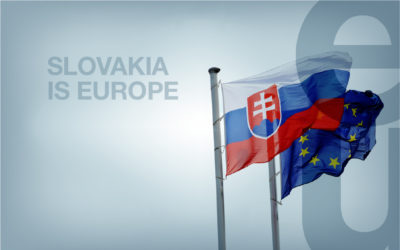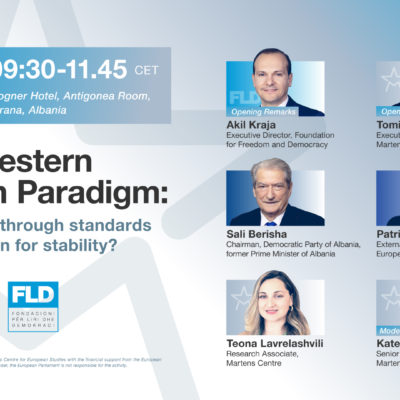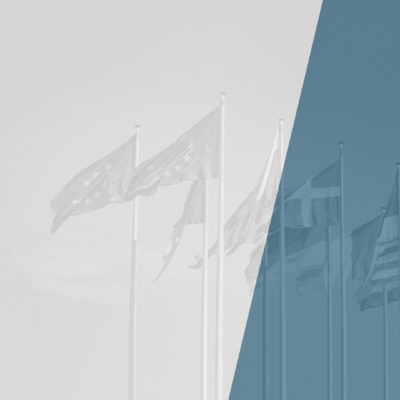Related publications
-
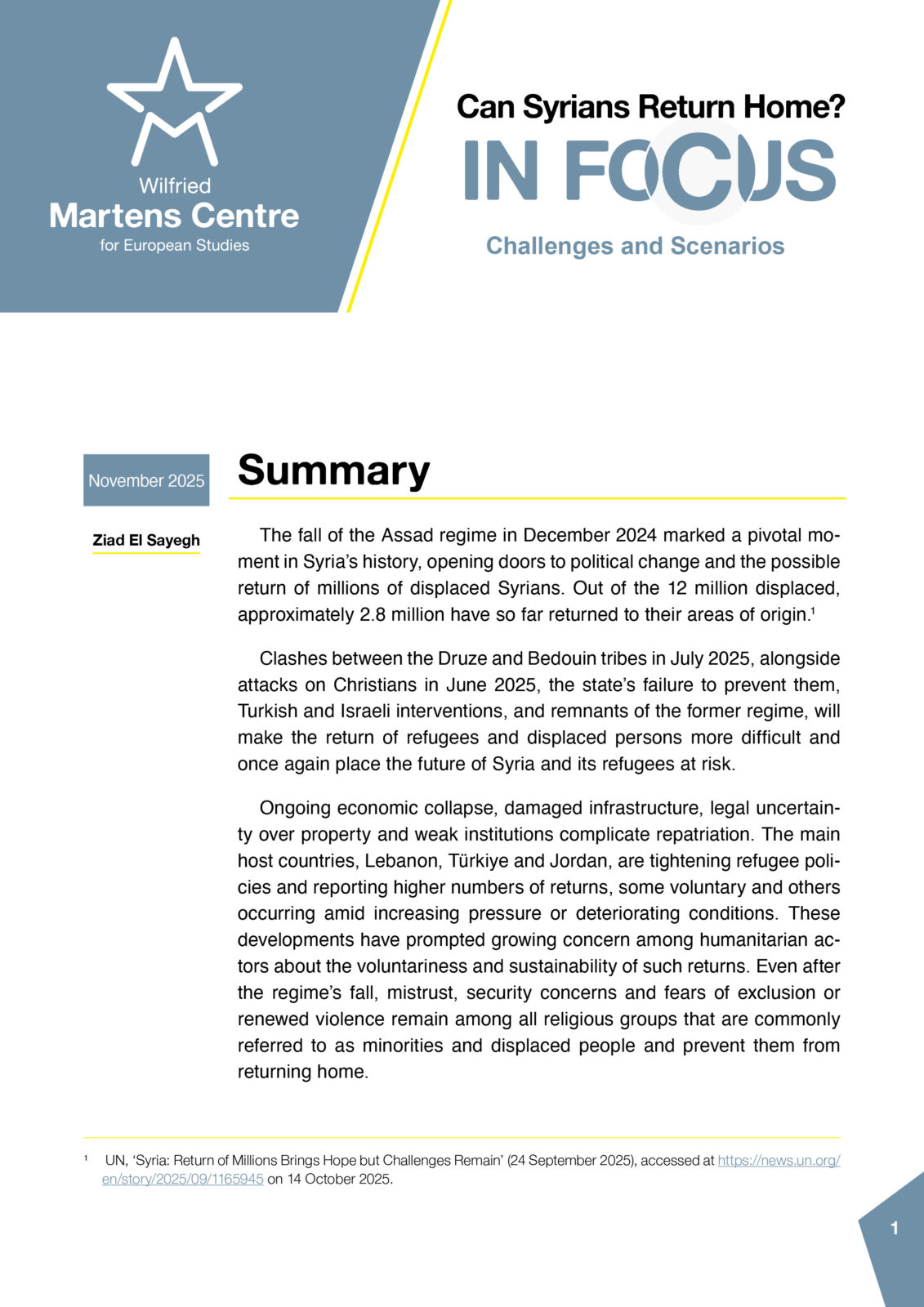
IN FOCUS
Can Syrians Return Home? Challenges and Scenarios
-

Other
Working Migrants Valued for Their Economic Contribution
-
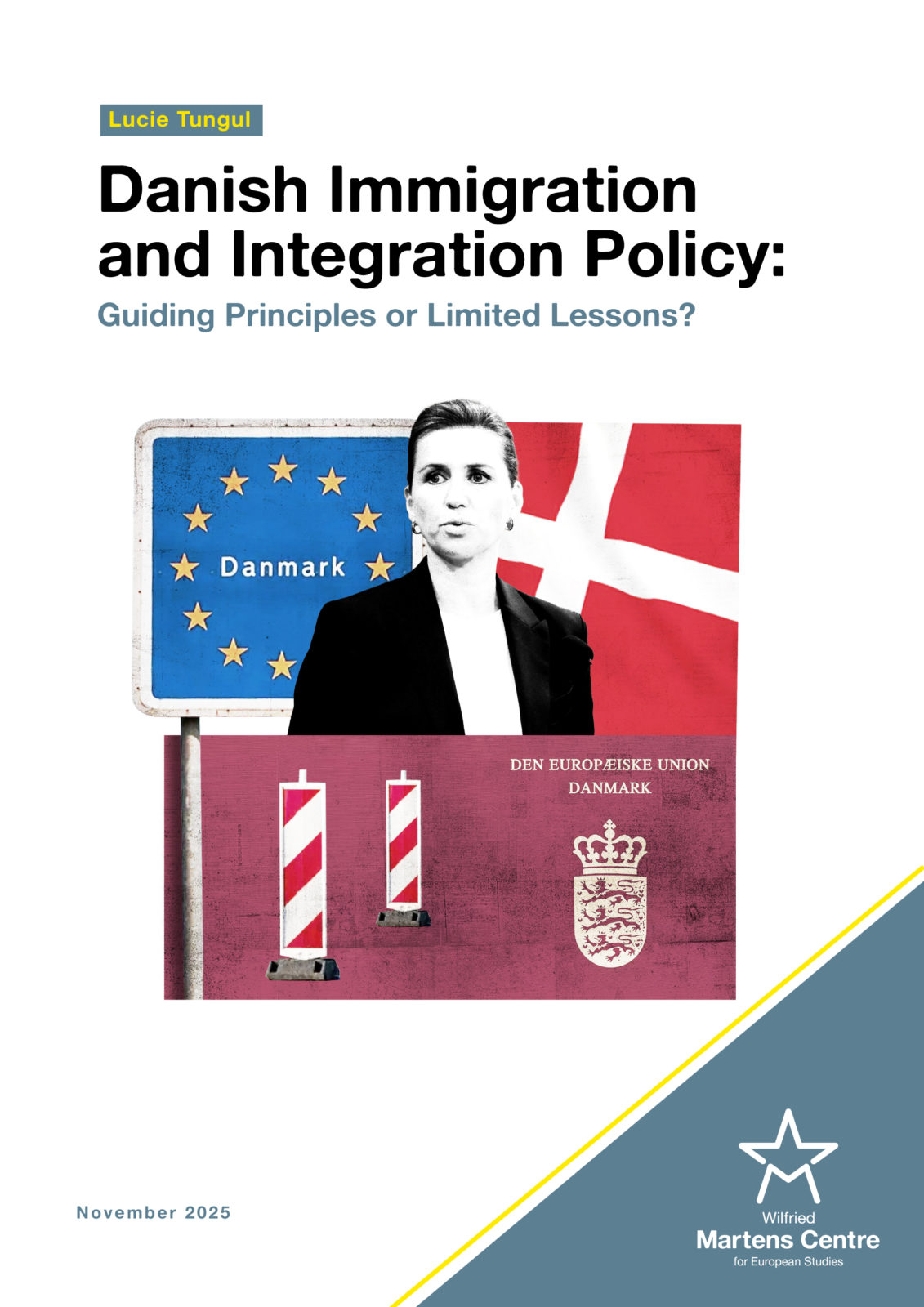
Other
Danish Immigration and Integration Policy: Guiding Principles or Limited Lessons?
-
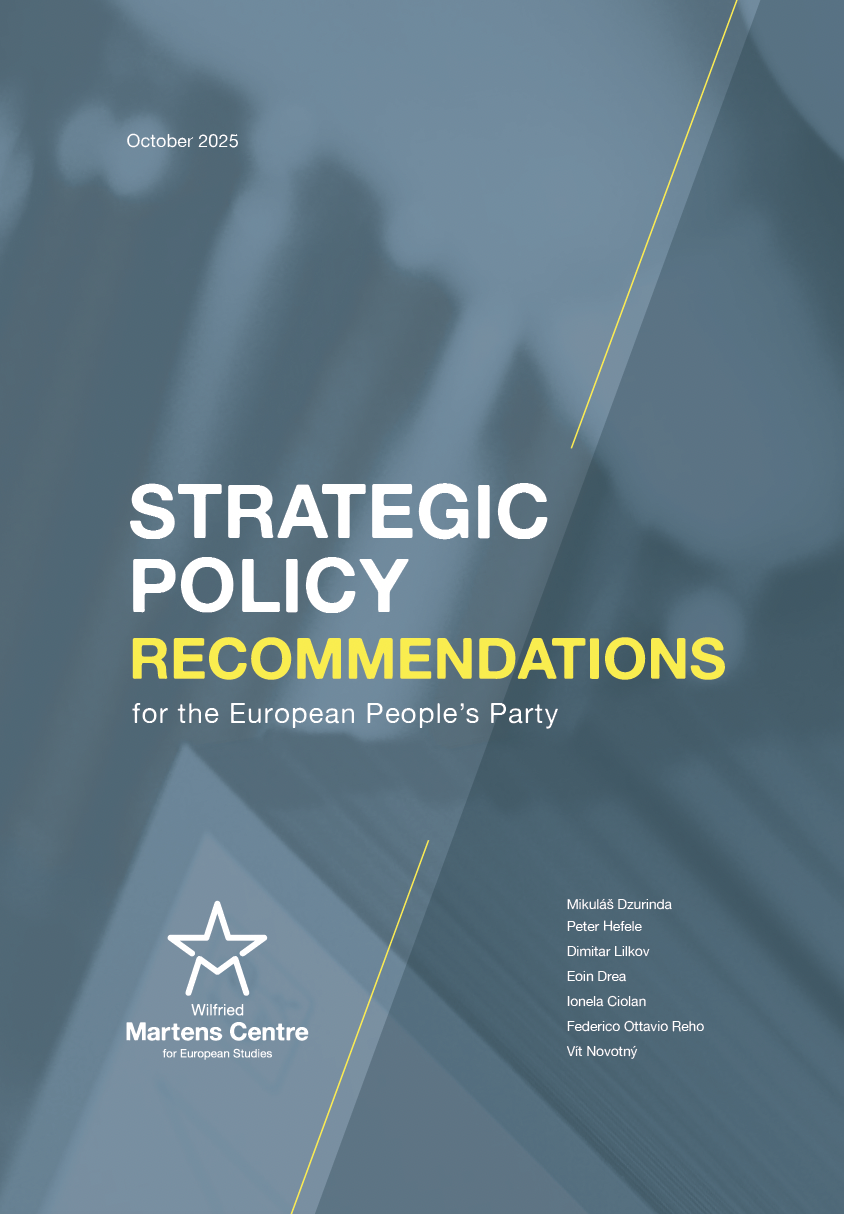
Other
Strategic Policy Recommendations for the European People’s Party
-
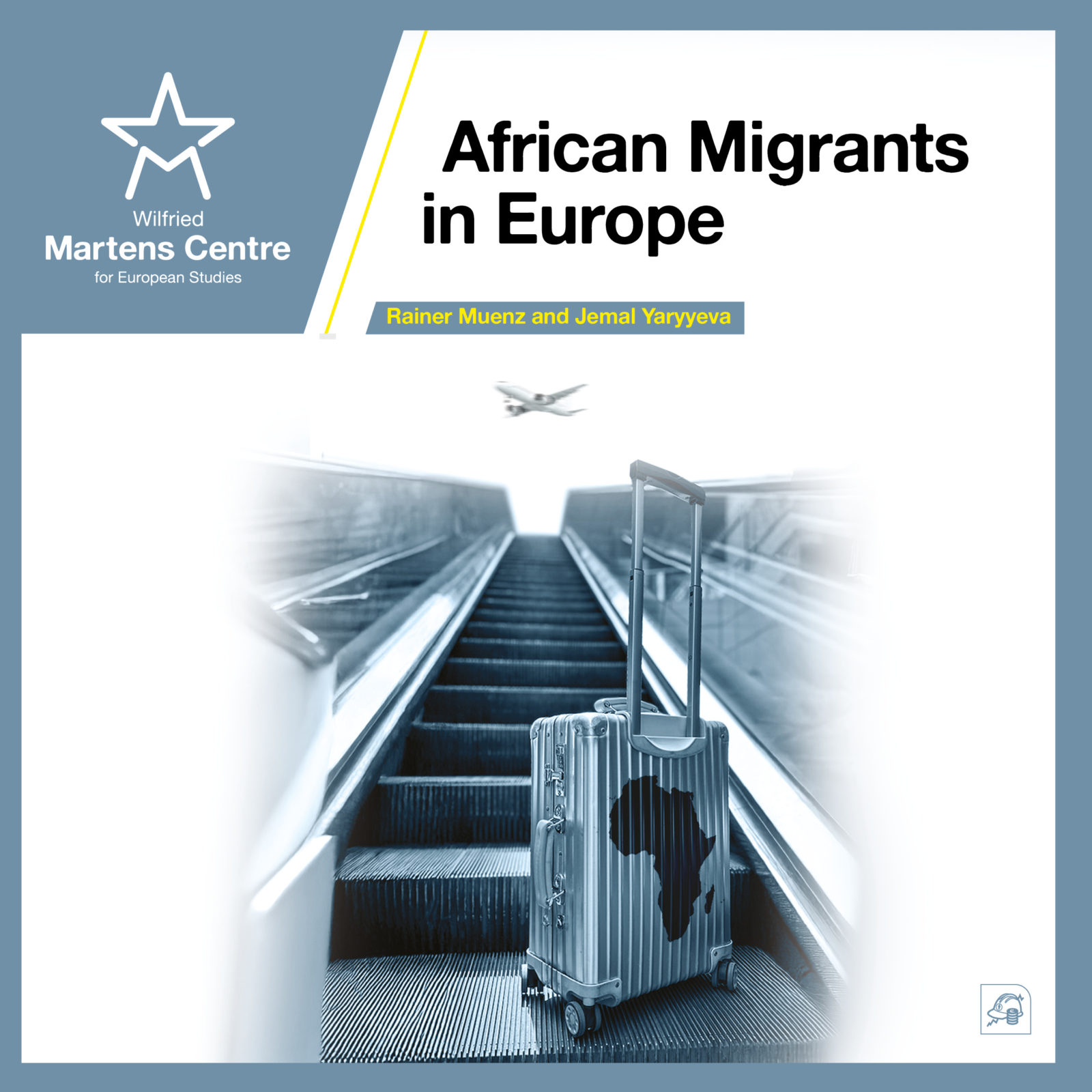
Research Papers
African Migrants in Europe
-
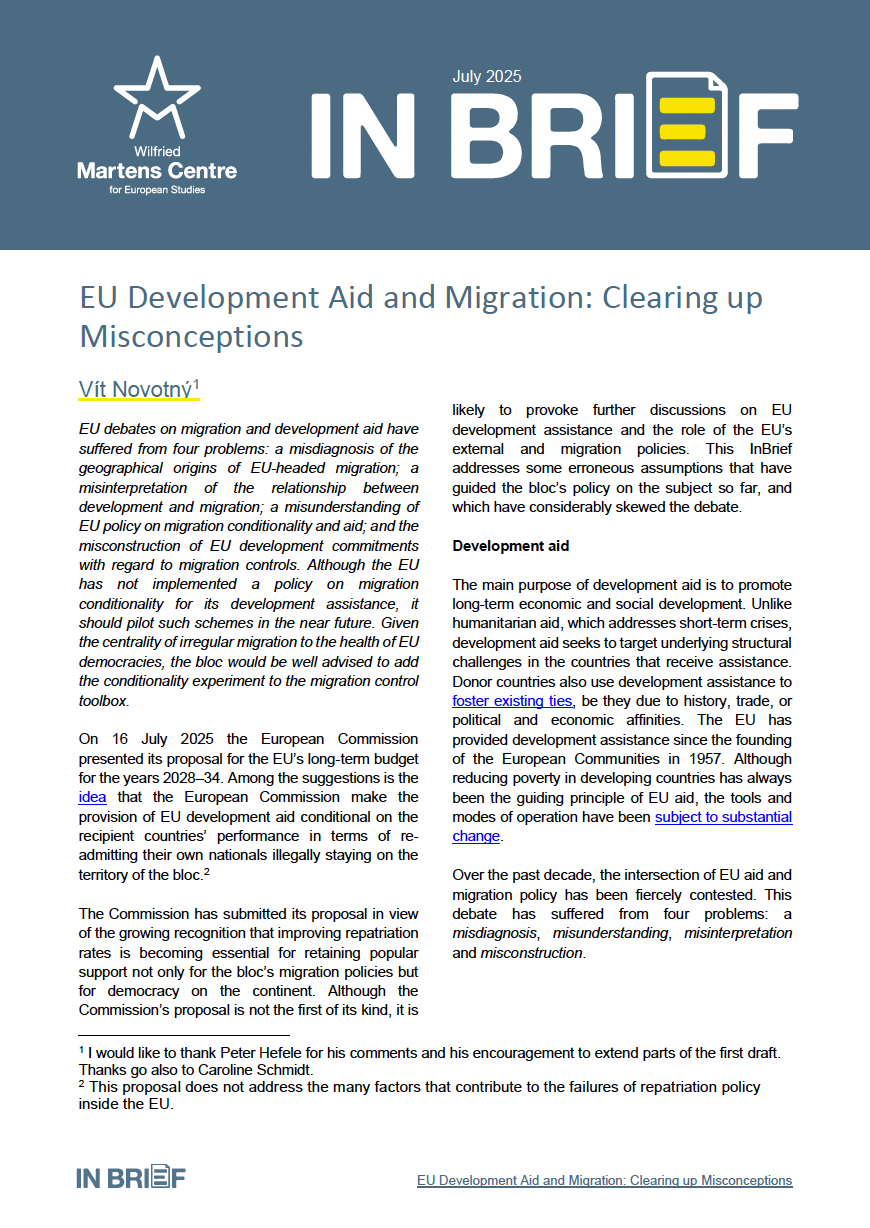
IN BRIEF
EU Development Aid and Migration: Clearing up Misconceptions
-
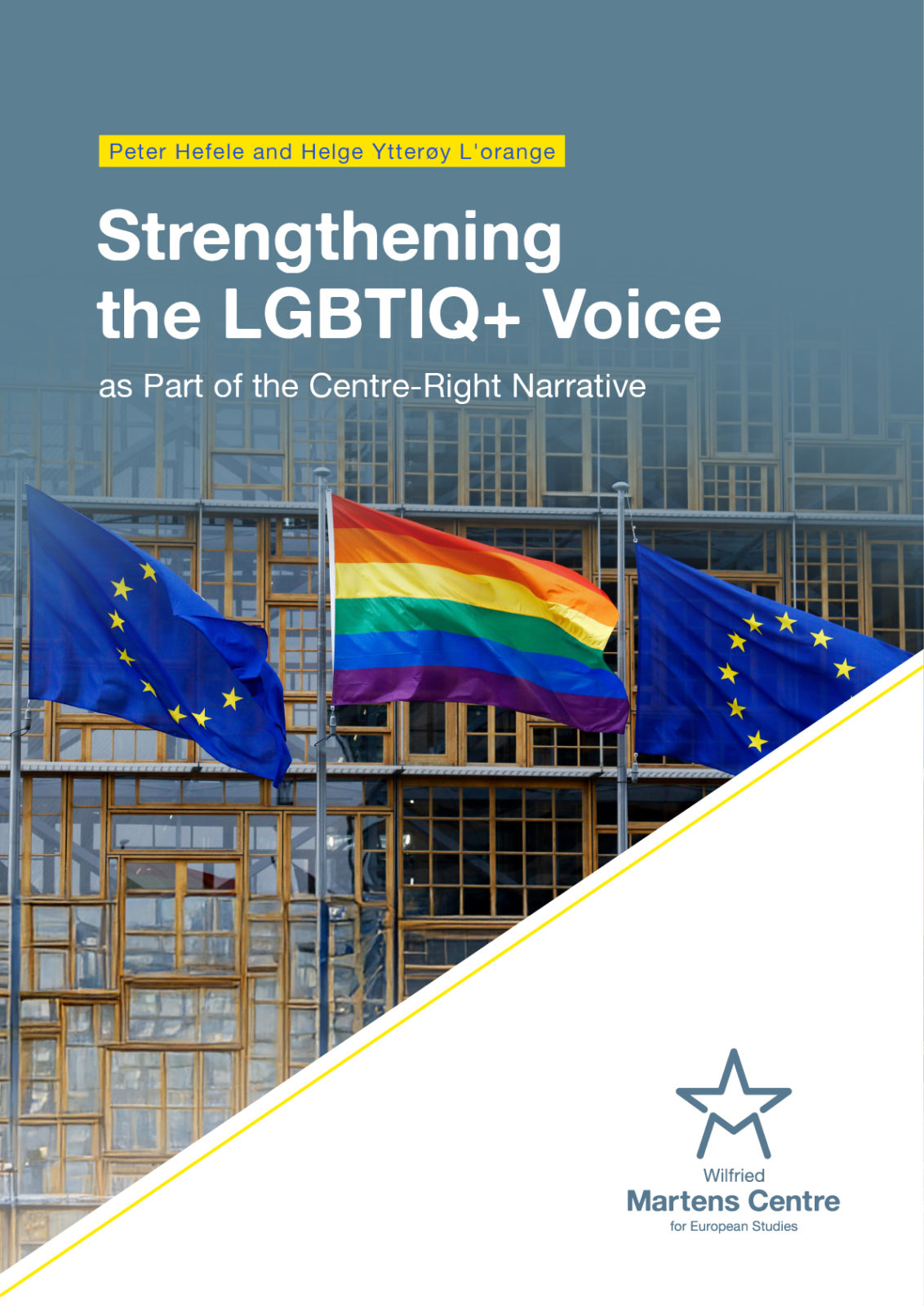
Other
Strengthening the LGBTIQ+ Voice As Part of the Centre-Right Narrative
-
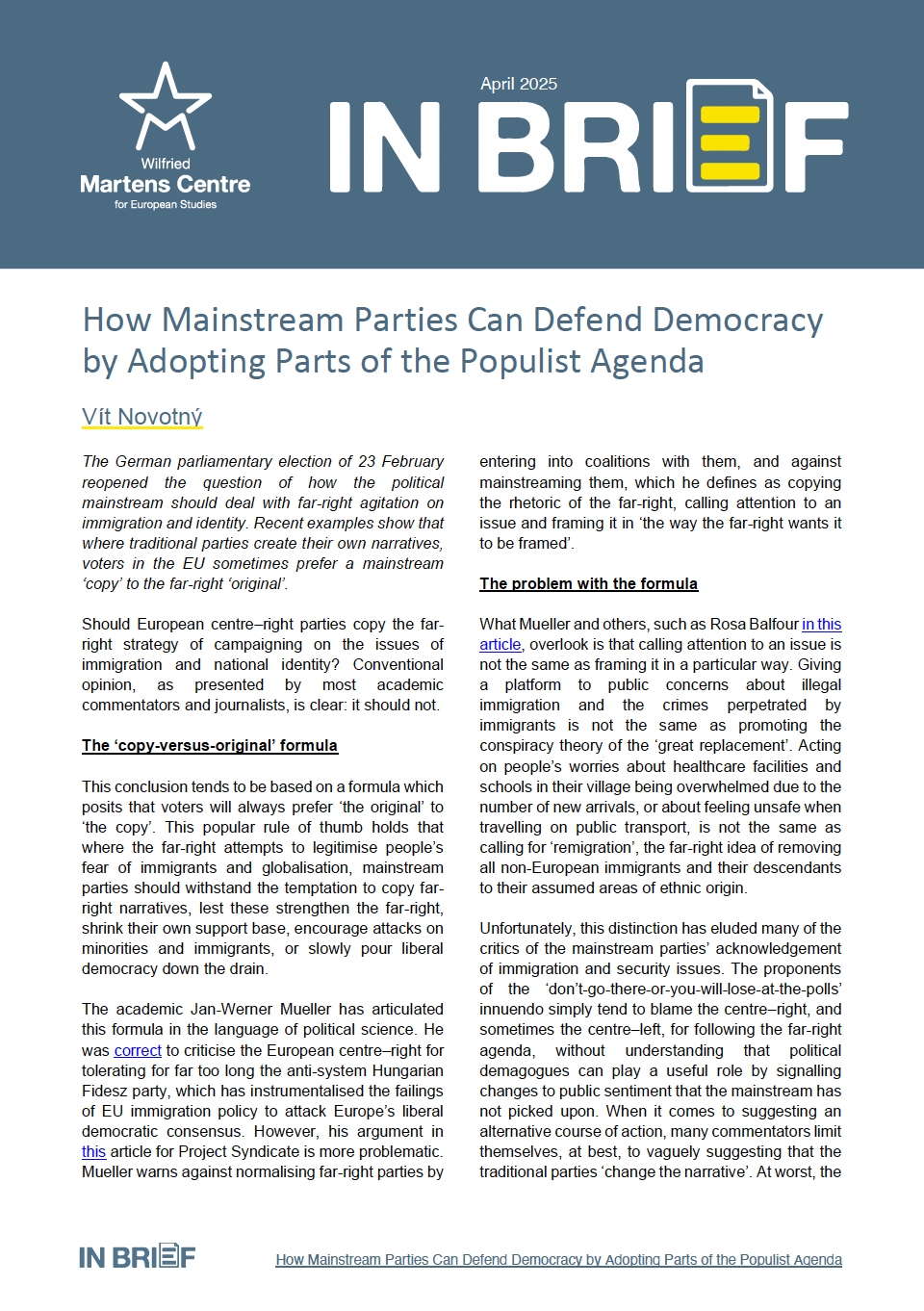
IN BRIEF
How Mainstream Parties Can Defend Democracy by Adopting Parts of the Populist Agenda







